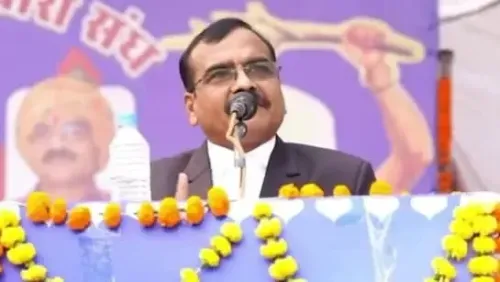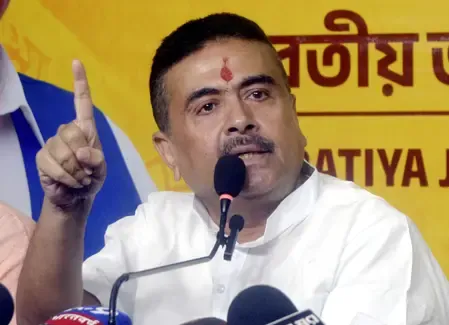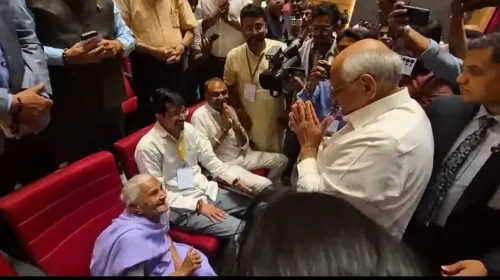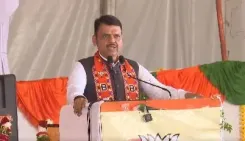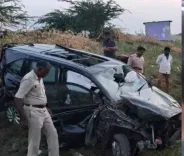What Are the Shared Security Challenges Discussed by India and the EU?
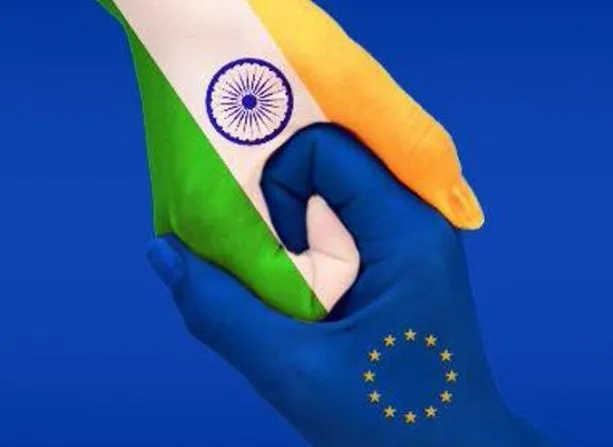
Synopsis
Key Takeaways
- India and EU are negotiating a Security and Defence Partnership.
- Discussions focus on global security challenges.
- Both parties aim to conclude a Free Trade Agreement by year-end.
- Commitment to multilateral cooperation and dialogue.
- Preparations for a new Joint EU-India Comprehensive Strategic Agenda.
Brussels, Nov 25 (NationPress) India and the European Union are eager for productive discussions aimed at achieving a timely and fruitful conclusion of a Security and Defence Partnership along with a Security of Information Agreement. This anticipation comes from a joint statement following the recent 11th India-EU Foreign Policy and Security Consultations and the 6th Strategic Partnership Review Meeting held in Brussels.
The meetings, which took place on November 18-19, evaluated the full range of the bilateral relationship and reviewed the progress on the 'India–EU Strategic Partnership: A Roadmap to 2025', which is nearing completion this year. The Joint Statement noted that both parties celebrated the “very positive momentum” in EU-India relations, highlighted by the significant visit of the College of Commissioners to India in February, the inaugural EU-India Strategic Dialogue in Brussels led by HRVP Kallas and External Affairs Minister S Jaishankar in June, and the EU's adoption of the Joint Communication on the Strategic Agenda on India in September.
The discussions spanned various subjects, including economic security, resilient supply chains, trade and investment, the Global Gateway, the India-EU Connectivity Partnership, and the India-Middle East-Europe Economic Corridor (IMEC). Additionally, there were talks on collaboration in innovation, science and technology, and opportunities to strengthen people-to-people relations in education and research.
“Both sides reiterated their shared goal to finalize negotiations on the Free Trade Agreement by year-end and to expedite discussions on the Investment Protection Agreement and the Agreement on Geographical Indications. They emphasized the significance of multilateral cooperation and ongoing dialogue on economic matters, particularly supply chain diversification. Progress within the India-EU Trade and Technology Council (TTC) was acknowledged, and both looked forward to the next TTC Ministerial Meeting in Brussels in 2026,” the statement indicated.
The Foreign Policy and Security Consultations were co-chaired by EU's Deputy Secretary General for Political Affairs Olof Skoog and the Secretary (West) at the Ministry of External Affairs (MEA) Sibi George. The senior Indian diplomat also led the Strategic Partnership Review alongside EU's Acting Deputy Secretary General for Economic and Global Issues, Olivier Bailly.
“The EU and India explored perspectives for strengthening their partnership on global issues, which include enhanced cooperation in the multilateral system and collaboration on humanitarian and disaster resilience matters through the Coalition for Disaster Resilient Infrastructure. They recognized India’s upcoming BRICS Chairship in 2026 and noted significant alignments on global challenges that warrant further exploration. Both parties unequivocally condemned terrorism and violent extremism in all its forms and manifestations, including cross-border terrorism. They also anticipated the upcoming session of the India-EU Human Rights Dialogue,” the Joint Statement added.
The consultations underscored the mutual commitment to bolstering coordination on regional and global security, reiterating their dedication to promoting a free, open, inclusive, peaceful, and prosperous Indo-Pacific. The discussions advocated for adherence to a rules-based international order, respect for sovereignty, territorial integrity, and peaceful dispute resolution. The two parties emphasized the necessity for a comprehensive, just, and enduring peace in Ukraine in line with international law and the UN charter principles, and reiterated their support for the Peace Plan for Gaza, calling for the swift restoration of peace and stability.
“The consultations also acknowledged the wide array of shared security challenges and reaffirmed their mutual interest in enhancing EU-India security and defence dialogue and cooperation, particularly on maritime security, counterterrorism, cyber issues, space, defence industry, disarmament, and non-proliferation. Both sides highlighted advancements in these areas and reaffirmed their commitment to deepening collaboration in peace, security, and defence matters. The EU and India aspire to constructive negotiations for the timely and successful conclusion of a Security and Defence Partnership and a Security of Information Agreement,” the Joint Statement noted.
The dialogue also centered on preparations for the next phase of the partnership, focusing on the development of a new Joint EU-India Comprehensive Strategic Agenda, anticipated to be endorsed during the India-EU Summit next year in New Delhi.
The MEA Secretary (West) also participated in the EU Indo-Pacific Ministerial Forum on November 20-21, where he delivered a keynote address at a high-level event on Critical Maritime Infrastructure and contributed to a roundtable on Shared Prosperity, Economic Security, and Digital Connectivity.

